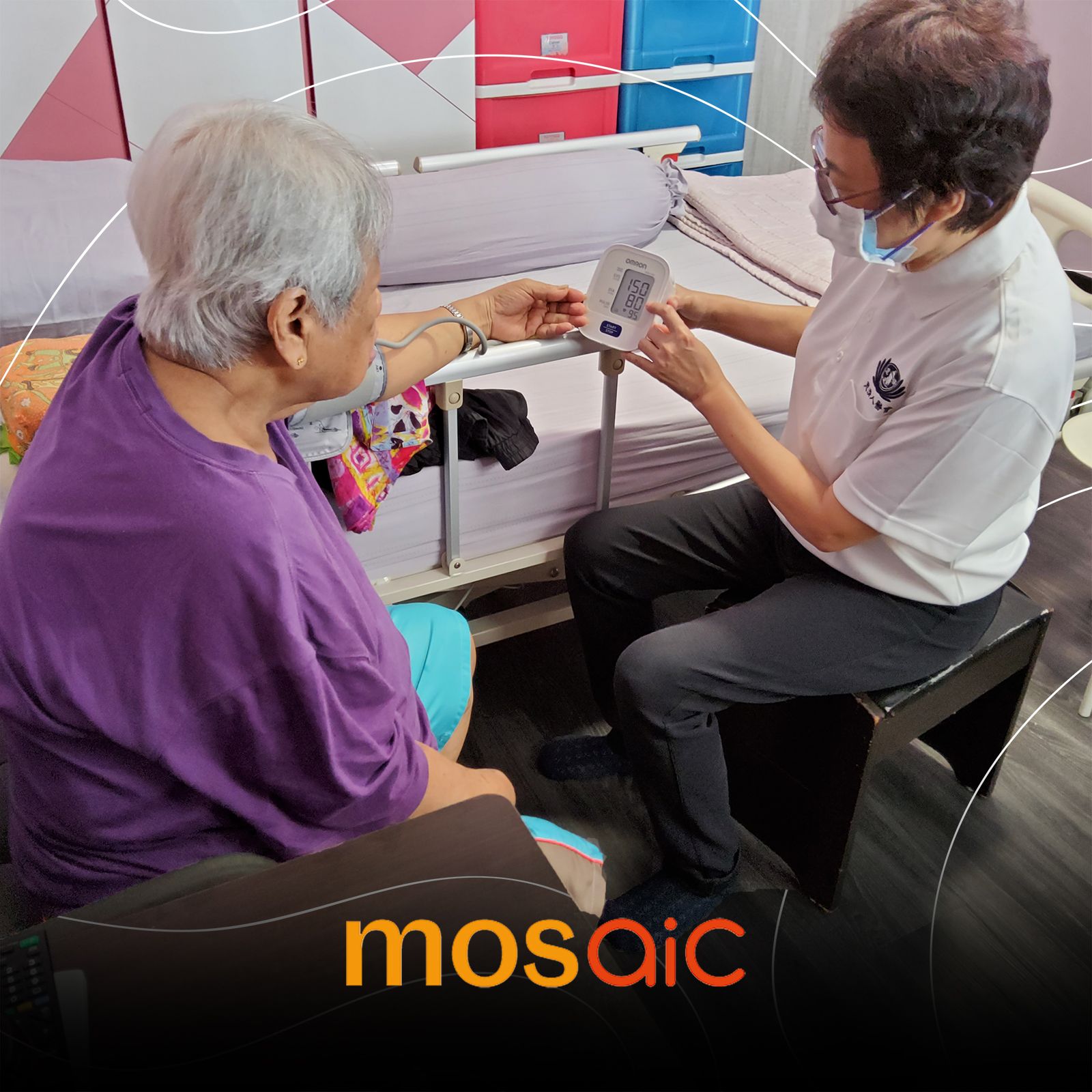This Community Care Organisation Delivers Non-Dialysis Treatment to Patients with End Stage Renal Disease

During the Ministry of Health’s Committee of Supply debate in March, Minister for Health Ong Ye Kung talked about the Healthier SG initiative, which focuses on preventive care as well as the importance of a seamless care model in the community.
While that will be a focus for the healthcare and Community Care sectors in the coming years, the good news is, we’re not starting from Ground Zero. Over the years, Community Care organisations have worked with various partners to ensure seamless care for their clients. An example? The Conservative (Non-Dialysis) Management (CM) of Patients with
End Stage Renal Disease (ESRD) initiative – a collaboration between Tzu Chi Foundation and Sengkang General Hospital (SKH).
The programme is for patients from SKH who are diagnosed with ESRD, and opted or deemed suitable by their Renal Specialists for non-dialysis conservative management.
Tzu Chi’s Role in the Programme
Tzu Chi, as the Community Care partner, provides closer care for these patients as their condition progresses over time, as opposed to episodic contact with the hospital.
Tzu Chi’s Renal Conservative Care (RCC) Team, with support from SKH Renal team, provide active home-based support, including trained nurses and social worker. The support comprises:
- Slowing down kidney disease progression and minimise risk of adverse events or complications
- Shared decision-making to help plan for the future
- Active symptom management
- Detailed communication, including Advance Care Planning (ACP)
- Psychological support
- Social and family support
Why opt for CM?
For some patients with ESRD, dialysis may not help them live longer, improve their quality of life, or treat other medical conditions such as diabetes, heart disease, stroke, pain and others. Moreover, dialysis may not be suitable for:
- The elderly and frail
- Those with serious health problems such as dementia, advanced heart failure, end-stage liver disease, or advanced cancer
As ESRD is a multi-faceted problem, the RCC home care service can and will support the patient in making multiple physical and psychological adjustments, so they can have a meaningful quality of life, and to prepare the patient and their family for the end-of-life journey.
Challenges and Learning Points
Through this programme, Tzu Chi aims to help the community see CM as a viable and well-supported treatment option of ESRD for the appropriate patient group. They achieved this by empowering ESRD patients and their caregivers, through a process of close hand-holding, to improve their confidence level in CM as a treatment option for their condition.
As Tzu Chi executed the programme, they faced a few challenges, such as managing patients’ perceptions of their own disease. Some patients interpret a lack of symptoms as a low severity of disease. Hence, they and their family may delay having critical discussions, such as ACP and other important decisions.
For families who are open to having ACP discussions, the Tzu Chi team found that it was difficult to find time for the family members to meet to have that conversation. Through these experiences, the Tzu Chi team realised that communication is about listening first. It is important that the RCC Team gives patients the opportunity to discuss the likely trajectory of their illness, including death, dying, and advanced care planning, in order to promote optimal end-of-life care.
Another challenge the team faced was that the condition of the patient can change very quickly. Hence, they learnt that skilled CM nursing skill is needed to deliver holistic patient care with emphasis on symptom control, nutrition, quality of life, and Advance Care Planning.
The team also noted that they are sometimes unable to secure hospice care when needed, as the hospice is full. As such, the team aims to provide “The right care plan For the right patient At the right time of their life”.
Support from Tote Board
The programme is supported by the Tote Board Community Health Fund (TBCHF). Neo Aik Xin, Senior Manager (Development & Partnerships) of Tote Board said, “It is encouraging that our support, through TBCHF, empowers ESRD patients and their caregivers. This successful pilot embodies TBCHF’s aim of improving affordability and accessibility to healthcare and enhances patients’ quality of life, furthering our mission of a caring and resilient society.”
Tote Board is a recipient of Friends of Community Care Award 2021.
For more information on the Tote Board Community Health Fund, visit https://www.aic.sg/partners/tote-board-community-health-fund
